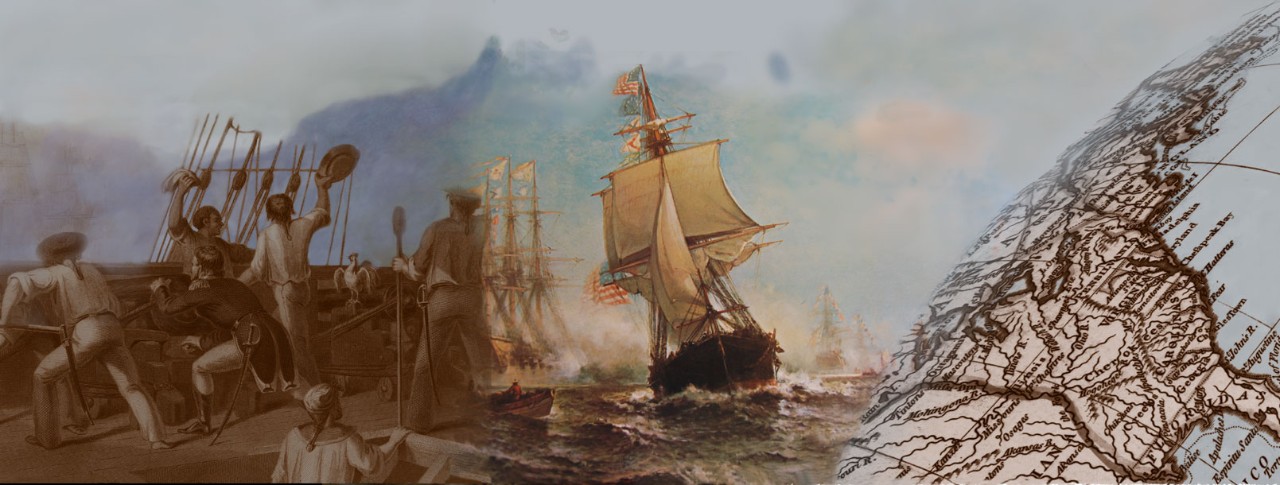
Barron, James
James Barron was born in Virginia in 1769. As a youth he served in the Virginia Navy during the last years of the American Revolution and, nearly two decades later in 1798, received a commission as a Lieutenant in the new U.S. Navy. He demonstrated superior seamanship abilities as an officer of the frigate United States, was promoted to Captain and commanded the frigate Warren in 1800-1801, during the final months of the Quasi-War with France. Over the next several years he had Tripolitan War service in the Mediterranean and supervised the construction of a gunboat. In 1807 Barron was assigned to command U.S. Navy forces in the Mediterranean, but on 22 June his flagship, USS Chesapeake, was intercepted, fired upon and captured by a British warship. The American ship had just left port and was unready for action, and the affair produced great resentment in the United States. Commodore Barron was convicted by a court-martial of not having properly prepared his ship and received a five-year suspension from the service.
Barron then began several years of commercial activity and remained so-employed in Europe during the War of 1812. He came back to the U.S. following the end of the conflict and resumed his Navy service. He remained controversial, and his reputation was not enhanced when, in March 1820, he killed the widely-respected Commdore Stephen Decatur in a duel. Though wounded, Barron recovered and went on to have a long career ashore, where his commands included the Philadelphia Navy Yard. When Commodore James Barron died at Norfolk, Virginia, on 21 April 1851, he was the Navy's most senior officer.
This page features the only view we have of Commodore James Barron, USN.


